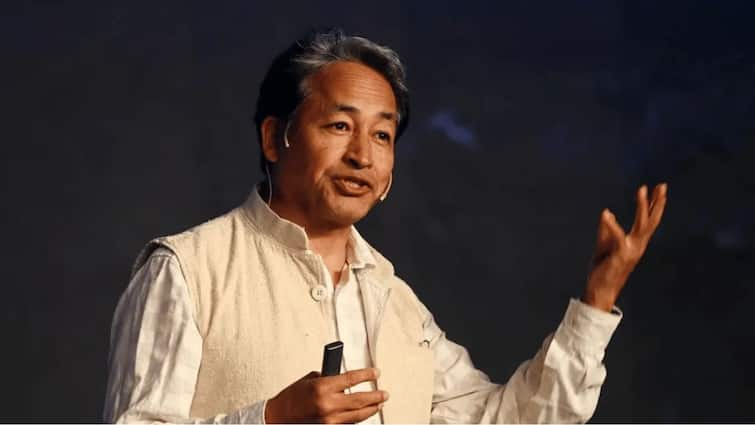TIME magazine has included Sonam Wangchuk, an engineer and education reformer from Ladakh, in its list of the “100 Most Influential Climate Leaders of 2025.” Featured in the “Defenders” category, the recognition focuses on his work in developing ice stupas, artificial glaciers that store winter water in conical ice structures to support irrigation in summer. The model, which has been adopted in Nepal, Chile, Pakistan and Switzerland, links traditional mountain practices with modern engineering to address water shortages in high-altitude regions.
While his own Government is busy proclaiming @Wangchuk66 an anti-national and a threat to national security under the NSA, the #TimeMagazine is celebrating him as “the world’s most influential leaders driving business to real climate action” in its 2025 #TIME100Climate list!…
— Gitanjali J Angmo (@GitanjaliAngmo) October 31, 2025
The Idea Behind The Ice Stupas
Born in Ladakh, Wangchuk observed from an early age how melting glaciers sustained life in the region. Using this understanding, he designed a system that channels glacial meltwater through underground pipes in winter. When released, the water freezes into cone-shaped towers known as ice stupas, which can store millions of litres of water. As temperatures rise, the ice melts gradually, ensuring a steady supply for farming when natural water sources dry up.
In recent years, Wangchuk’s team has also introduced “smart stupas” fitted with automated valves that adjust water flow according to weather conditions. The upgrade reduces manual work and improves efficiency, offering a model that can be replicated in other mountainous regions.
Recognition Amid Detention
Wangchuk’s international recognition comes while he remains detained under India’s National Security Act (NSA) since late September 2025. His arrest followed a 35-day hunger strike calling for statehood for Ladakh and constitutional safeguards under the Sixth Schedule. The case has drawn attention to the treatment of environmental campaigners and local autonomy in the Himalayan region.
The Supreme Court of India has sought responses from the central and Ladakh administrations on his detention. His wife, Gitanjali Angmo, has said the situation reflects a contradiction, global recognition abroad and restrictions at home.


